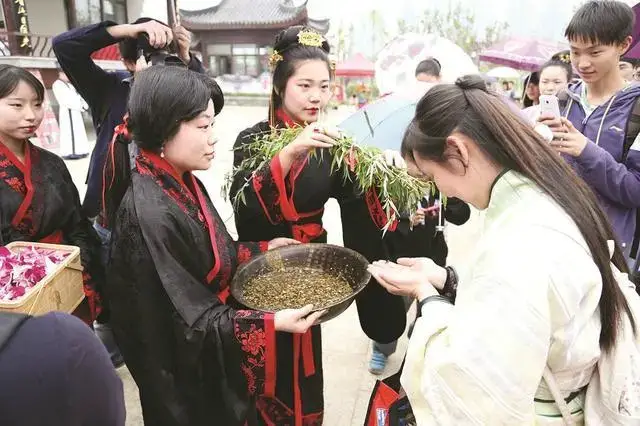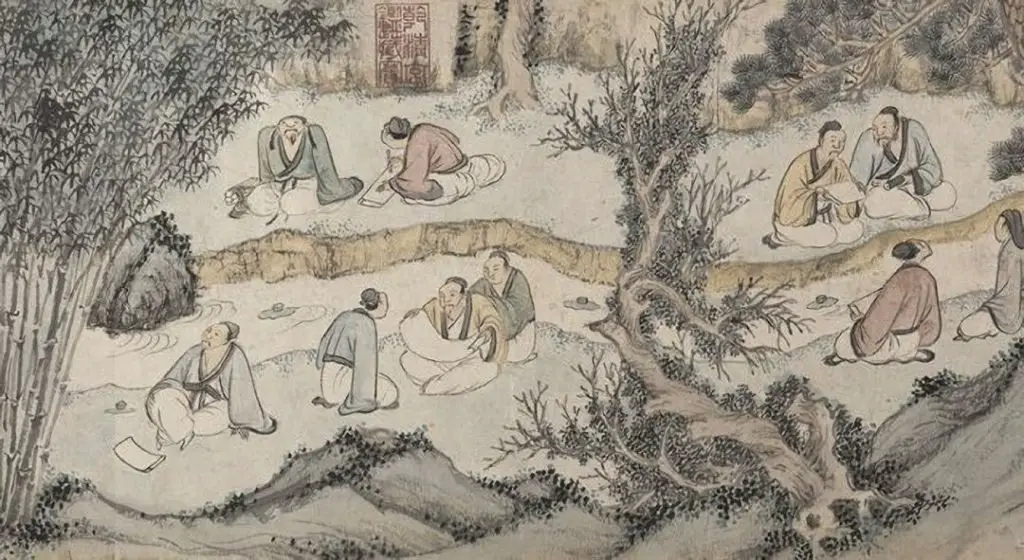Purification Ritual(祓禊fú xì), originating from ancient religious ceremonies, is a traditional folk activity in China aimed at dispelling ominous forces and seeking happiness. Celebrated on the third day of the third lunar month each year, people gather by rivers and lakes to conduct worship ceremonies and participate in various folk activities to pray for health, peace, and prosperity.
In ancient times, the third day of the third lunar month was considered a day of cosmic harmony when yin and yang converge. On this day, people would perform worship ceremonies by the water to drive away negative energy, seeking a peaceful and prosperous new year. Offerings such as wine and fruits are presented, accompanied by rituals like burning incense, paper, and setting off firecrackers during the ceremony.

Apart from worship ceremonies, various folk activities take place, including outings, flower appreciation, and dragon boat races. These activities aim not only to promote physical health but also to strengthen social bonds and community cohesion.
While in contemporary China, some regions have seen the decline or fading of Purification Ritual customs, certain areas still preserve this tradition. In these places, people continue to conduct worship by the water and engage in diverse folk activities on the third day of the third lunar month.
Culturally, Purification Ritual is not just a folk activity; it represents a cultural legacy. Through these rituals, people can understand and experience ancient cultural traditions and values. Participation in these activities fosters a sense of identity and belonging to one’s community and culture.
Beyond cultural heritage, Purification Ritual holds significant social meaning. On this day, people come together to collectively pray for happiness and peace. This communal gathering facilitates stronger community cohesion and interpersonal connections. Additionally, participating in these activities allows individuals to release stress and emotions, contributing to improved mental well-being.
In modern society, with accelerated urbanization and changing lifestyles, some traditional customs and values are gradually disappearing. In this context, protecting and inheriting the Purification Ritual becomes particularly important.
To preserve and pass on this tradition, the government and various sectors of society should take measures. Firstly, the government should enhance protection efforts for this cultural tradition by implementing relevant policies and regulations. Educational institutions should incorporate these traditions into school curricula, ensuring that younger generations understand and recognize these practices.

Furthermore, society at large should actively engage in the preservation of these traditions. Cultural institutions can organize folk activities and exhibitions, raising awareness and encouraging participation. Media outlets can contribute to publicizing these traditions, and communities can host related events to involve residents in these cultural practices.
In conclusion, Purification Ritual is a vital aspect of traditional Chinese culture with profound historical and cultural significance. Efforts should be made to strengthen the protection and inheritance of this tradition, allowing more young people to understand and participate in these activities. Cooperation between the government and various sectors of society is essential to jointly promote the preservation and development of this tradition.
